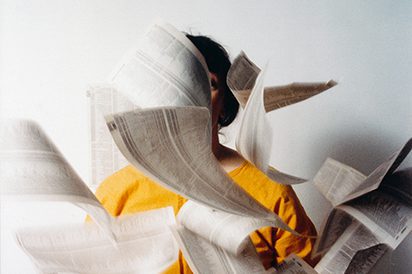FRAC Lorraine, Metz, France
23 Jun 2017 - 05 Nov 2017

What does it even mean to work today?
Achieving social status, keeping busy every day, having a source of income, or perhaps feeling useful? Discover an intersectional group exhibition that puts “invisible” workers in the spotlight: from house cleaners to interns, to artists and cultural actors! The guest curator Virginie Jourdain presents an original interpretation of the working environment from a committed activist and feminist point of view. This exhibition at FRAC Lorraine takes a fresh look at the different types of labor, whether domestic, artistic, or breadwinning, and their social and moral significance.
Human Resources addresses the specificities of artists’ work from the point of view of artists themselves. There is no hierarchy among the works or contributions, whether issued from collaborative, horizontal, or solidarity-based practices or inspired by feminist activism and struggle.The projects of guest artists help to blend the question of work and artistic labor with essential reflections on well-being, strategies of survival, ethical modes of production, and inclusive perspectives conducive to rethinking labor.
This bold presentation is accompanied by head-spinning performances, empowerment workshops, and direct debates… Let’s share our professional experiences and take advantage of tools and activities that nourish our bodies and open our minds!
Human Resources is part of the group project Le travail à l’œuvre (Labor at Work) carried out by the three FRAC of the Grand Est region.
.
A Word from the Curator:
Through its artistic and activist contributions, the group exhibition Human Resources reverses the relationships between the center and the periphery of art by exploring that which is systematically marginalized whenever the question of work, a fortiori artistic work, is being raised. In this sense, the feminist analytical framework seems to be particularly relevant to examine the material conditions of production and dissemination of works discriminatory to women and minorities. The intersectional feminist approach allows us to raise awareness about the mechanisms that determine the types of production that tend to be privileged, the dynamics that govern our personal and professional relationships, as well as a diversity of contextual — physical, social, political, etc. — elements that frame and condition either appreciation or depreciation of artistic labor. How can artists reinvent work? Can we imagine an arts center of tomorrow without first challenging institutional norms and operating procedures?
How do we integrate a more global analysis of the value of labor and of the treatment of human resources into our reflection? How can the profession of the artist be a source of inspiration or emancipation? By bringing together the points of view of artists, cultural workers, and/or activists, while refusing to separate personal, familial, professional, artistic, and activist implications of work-related issues, we wish to shed light on the connections between — not always compatible — activities and identities that shape labor, and in particular artistic labor.
The exhibition Human Resources addresses the specificities of artists’ work from the point of view of artists themselves, while also emphasizing the question of invisible, undervalued, and underpaid or nonpaid work more generally. The works and contributions featured in the exhibition thus question the social and moral value of labor. There is no hierarchy among the works or contributions, whether issued from collaborative, horizontal, or solidarity-based practices or inspired by feminist activism and struggle. We also propose to open a broader discussion about work and working conditions through a series of meetings and workshops. The projects of guest artists help to blend the question of work and artistic labor with essential reflections on well-being, strategies of survival, ethical modes of production, and inclusive perspectives conducive to rethinking labor.
Virginie Jourdain
.
Participating artists: Ghada Amer, Béatrice Cussol, Décider entre hommes, Karl Holmqvist, Olga Kisseleva, Kapwani Kiwanga, Catherine Lescarbeau, Noémi McComber, Anne-Marie Proulx, Joshua Schwebel, Jo Spence, Pilvi Takala, Mierle Laderman Ukeles, Martine Viale
.